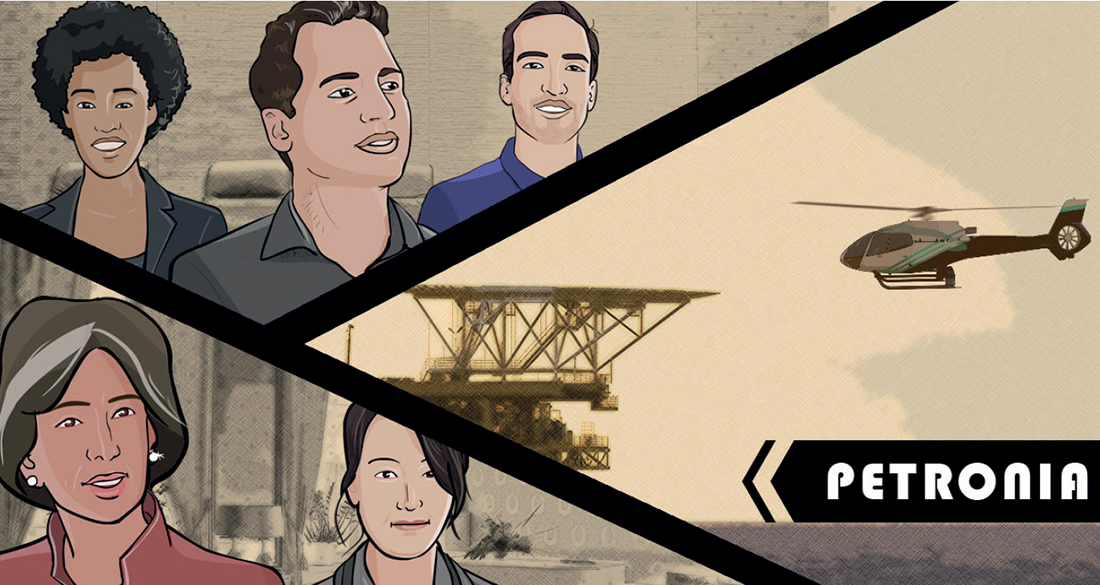
Reaching Wider Populations with Global Online Courses
The Challenge
Despite the critical relevance of natural resources to millions of peoples’ lives, most citizens of resource-rich countries have limited knowledge about how resources are governed. To address this knowledge gap, the Natural Resource Governance Institute (NRGI) developed two online training tools aimed at generating critical awareness and building technical knowledge about core resource governance issues. The first tool is a massive open online course (MOOC), “Natural Resources for Sustainable Development: The Fundamentals of Oil, Gas and Mining Governance.” The second is an online simulation called “Petronia,” named for an imaginary oil-rich country.
NRGI’s role
NRGI’s MOOC is a 12-week online course (produced in partnership with the Columbia Center on Sustainable Investment, the Sustainable Development Goals Academy and the World Bank) that provides a structured curriculum for those interested in learning about natural resource governance. Modules cover a wide range of topics, including legal and regulatory frameworks as well as environmental and social impacts. Participants audit university-quality lectures; engage in comparative analyses of their country contexts on a discussion board; pose questions then answered by faculty; and receive accreditation upon satisfactory course completion.

Aimed at a broader audience, Petronia is a simulated learning experience that allows online learners to explore the policy challenges of a fictional developing country that has just begun oil production. The learner joins a team of experts deployed to Petronia to advise policy-makers on a series of complex resource governance scenarios (based on models and case studies developed by NRGI experts). Learners explore various topics, including contract transparency and risk tolerance. Petronia’s animated graphics, presentation of technical content via brief conversational formats and interactive challenges are all designed to appeal to younger audiences who possess limited background knowledge of resource governance.
Impact
Within just four months of Petronia’s launch in June 2018, more than 5,000 learners have logged on, of whom nearly 400 have moved beyond the first mission. By mid-2018, more than 16,000 learners had enrolled in the MOOC.
These tools are reaching a wide range of learners. By providing them online at no cost, NRGI is increasing educational opportunities for learners who would be unable to attend formal in-person training. Women constitute approximately 40 percent of MOOC participants. Around 30 percent of MOOC participants originate from private sector entities (including extractive sector corporations). Online learning has been particularly successful in introducing younger people to natural resource governance issues—a majority of Petronia survey respondents fall within the 25-34 age range.
NRGI’s online offerings have allowed NRGI to reach individuals in over 140 countries/territories, including many places where NRGI doesn’t otherwise operate. A geoscientist from Somalia’s Ministry of Petroleum and Mineral Resources who completed the Petronia simulation remarked that “the discussed issues and options on natural resource governance has been very crucial and gave me a solid understanding of this sector.”
The principles of good governance that underpin the content of both the MOOC and Petronia are informing the work of other development organizations. For example, an independent expert assisting the United Nations Development Programme (UNDP) used course materials to inform the development of a UNDP capacity building program on sustainable development in Central Asia.
The courses have also helped to raise awareness of diagnostic and analytical tools and catalyze action. After completing the MOOC, a member from Union Minière du Gabon, a private sector alliance of around 20 companies in Gabon, learned about the Resource Governance Index (RGI), an NRGI tool that measures the quality of resource governance in 81 countries. He reached out to NRGI to discuss the role of the private sector in fostering transparency and accountability in Gabon.
Both the MOOC and Petronia have become key tools for building a broader and more foundational understanding of issues that are critical to good natural resource governance. Diverse participants are gaining knowledge that can help them make a difference in their professional roles, or simply as informed citizens. NRGI will continue to explore how to maximize these tools’ impact as it refines both the MOOC and Petronia.